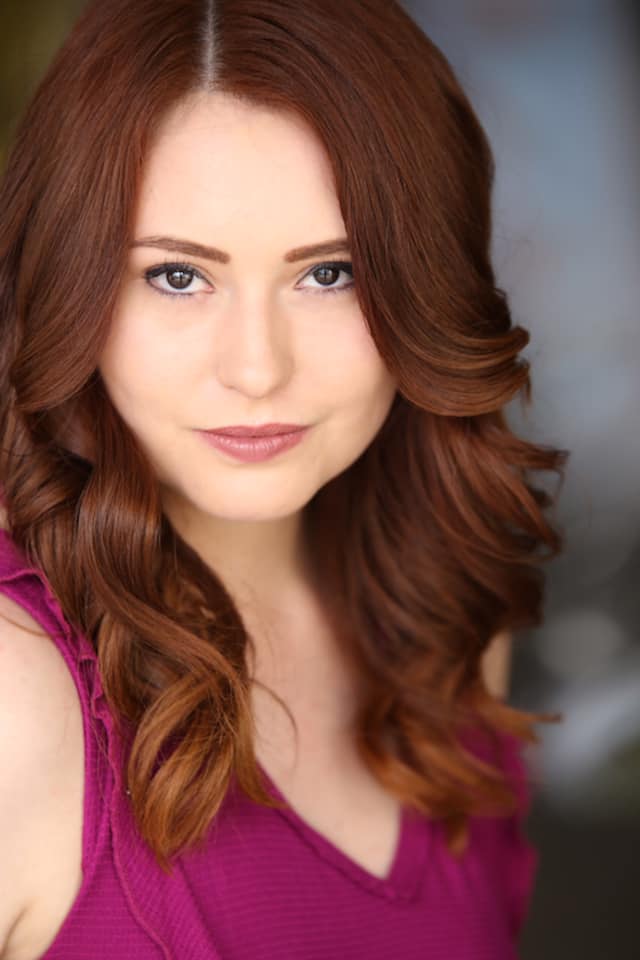
I think in this day and age, if you want to act, and if you want to be a filmmaker, you just kind of have to do it. It’s easier these days, too—you can make things on a lower budget, and there’s all these options with fundraising and all that kind of stuff now. And I just feel like if you truly want to act, waiting around for that audition and just going out on things when your agent gets them for you isn’t enough.
At first glance, the cover of Jillian Clare’s film Pretty Broken, which was just released on Video on Demand, suggests a sultry story—possibly a flirty young adult romance—with a neon pink aesthetic. While we were already looking forward to seeing what the young actress and producer would bring to the table in the genre, what we found in the film was something a bit more fresh, and much more ambitious. Clare’s character, Lindsey Lou, is an unemployed college dropout on the verge of divorce, which as it turns out, is just the least of her problems. The story follows Lindsey as she simultaneously grieves her father, who tragically passed in a climbing accident, and works through a disordered romance with a man (Tyler Christopher) who is also involved with her mother (Stacy Edwards). We called Clare on the week that Pretty Broken was re-released to chat about the film (warning: there are spoilers) and about what it was like for her to cross over into producing. Listen in…
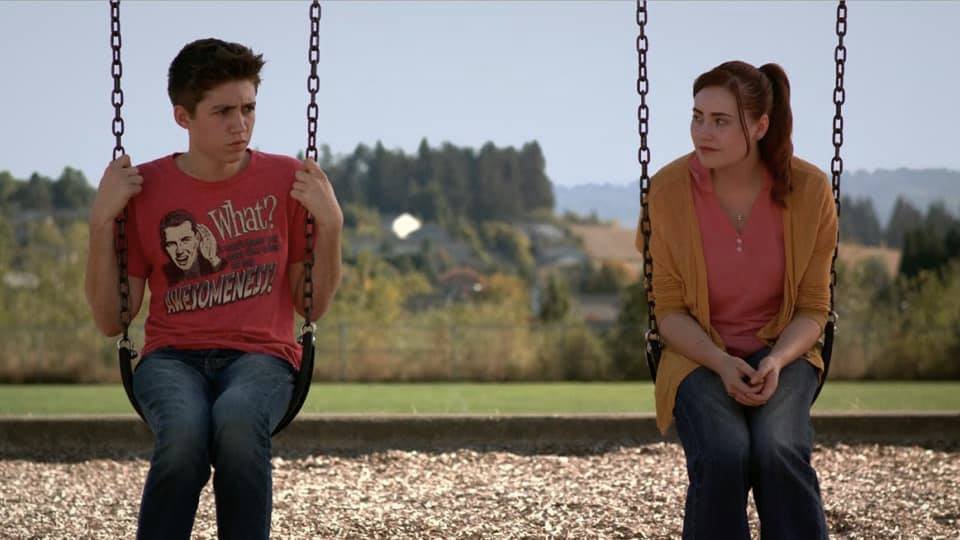
Cailin Loesch: There are subplots in this movie rooted in grief, and romance, and dysfunctional relationships. As we were watching, Hannah and I actually looked at each other and said at one point, “I did not expect it to go there!” When you first read the script, what was it about the story that most drew you in?
Jillian Clare: I read the script six years ago, which was quite a long time ago—
Hannah Loesch: Oh, wow! When did you film it?
Jillian: We filmed it over three years, a couple years ago. But I read it six years ago. At that time I think I was 19, and I hadn’t ever really seen a film that tackles grief with somebody that young. I’ve always seen it with older people, or teenagers. You know, there’s always this—typical movies are usually set with teenagers or with people in their 30s or 40s, and if it is somebody in their 20s, it’s usually a rom-com or a horror film, or something that is very genre-based. But I’ve never seen something like Pretty Broken where it’s just a slice of life, it’s not necessarily very dramatic and it’s not necessarily very funny—it’s everything. It’s all of the things that you go through in regular lives put together in one film. So when I read that, I was like, Oh, yeah. This is totally different than anything I’ll ever be a part of. And I was so thrilled to join the cast and come on as producer, and make the darn thing! ‘Cause I feel like more things need to be made that are more slices of life.
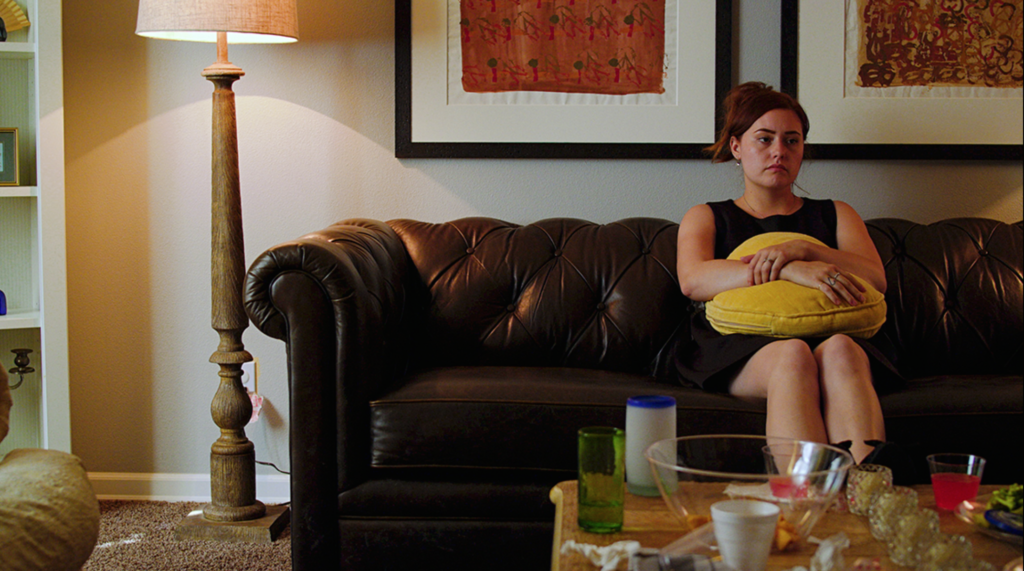
Hannah: Yeah. And I think it’s so amazing that you also produced. I know the role of the producer kind of changes from project to project. Can you walk us through your day-to-day as producer on this one?
Jillian: Oh gosh, there’s a lot! I guess the most recent stuff has been all of the social media. I’ve been kind of in charge of that. [laughs]
Hannah: That’s important!
Jillian: You know, it was little stuff like location scouting, then stuff as big as when we were casting Jerry, and having to watch all the tapes, and all of us just kind of sitting there and deciding who we thought would be best in the role. We had a great team—it was four main producers, and we all just kind of jived really well. It was me and my mom, and then the other two were the writer and the director, who are married as well. So it was kind of nice. We all just got together really, really well, and we had done another film together in 20… sometime. 2012, I think? But yeah, the day-to-day would always change. We filmed up in Portland, so I couldn’t do so much as far as locations and stuff like that–that was more the producers in Portland who were able to do that. ‘Cause I was down in LA … I had a pretty big hand in the casting of the characters that Lindsey interacted with the most. The kid who played my little brother Monty has been like my little brother since he was like two.
Hannah: It’s interesting that you had a hand in casting this, because the Jerry character, for example, is so—
Cailin: We were rallying against him the entire movie. I just knew there was something off about him! We were like, is it just us?
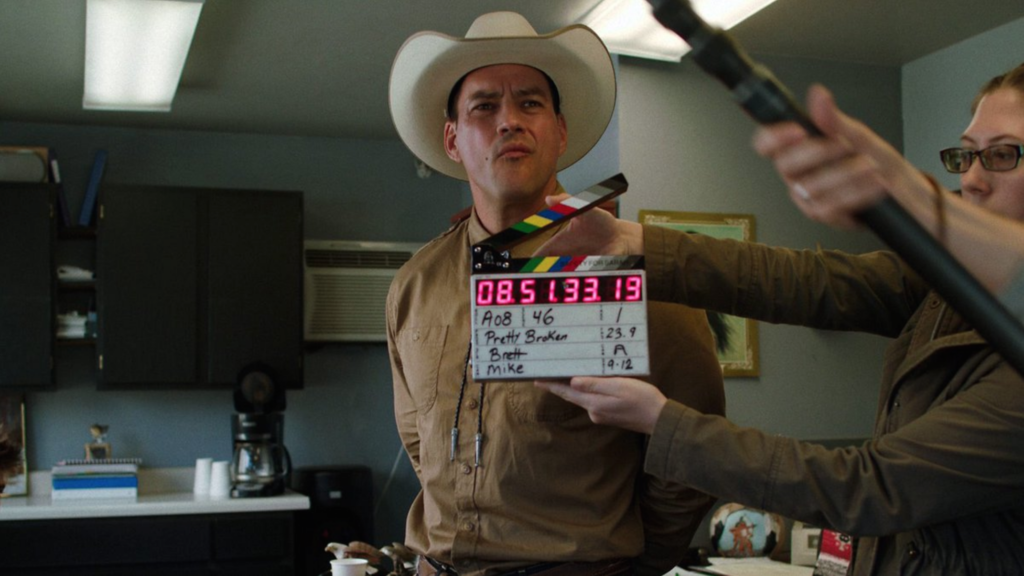
Hannah: Is he just awkward? Or is he creepy? Is there going to be some crazy plot twist? Well, that plot twist with the mom… that was a lot right there. But there was a tightrope where you just don’t know how to feel about him. So I feel like you need just the right person for that.
Cailin: When you read it, what did you think of the relationship between Lindsey and Jerry?
Jillian: Oh, man. When I read it, the relationship was actually a lot more flirty than how we played it.
Hannah: Oh my…it was flirty too in the movie!
Jillian: [laughs]
Cailin: It was those weird one-liners. [all laugh]
Jillian: I know, I know! But when Tyler got to set, we talked about it with the director , and we kind of wanted to tone down what the script had. ‘Cause the script was a lot more forward with the way Lindsey was acting, and how much Jerry was reciprocating that feeling. We still wanted him to be somewhat likable, like, somewhat okay. So we toned it down a lot. But yeah, Jerry was a crazy find. When I read it, I had seen like a Josh Lucas type, you know, this very suave blonde, blue-eyed dude, all-American. ‘Cause it also has that huge joke about him not actually being Native American. So we wanted somebody who didn’t look Native American at all, the picture of Americana. We ended up getting this tape from Tyler Christopher from our casting director—she had sent us multiple different auditions—and I was literally walking down main street in Disneyland when I got the tape. The director was like, “You’ve gotta watch him!” So I watched and I was like, That is 100% not what we thought Jerry would be, at all, but he’s perfect. Like I can’t imagine anyone else doing it.
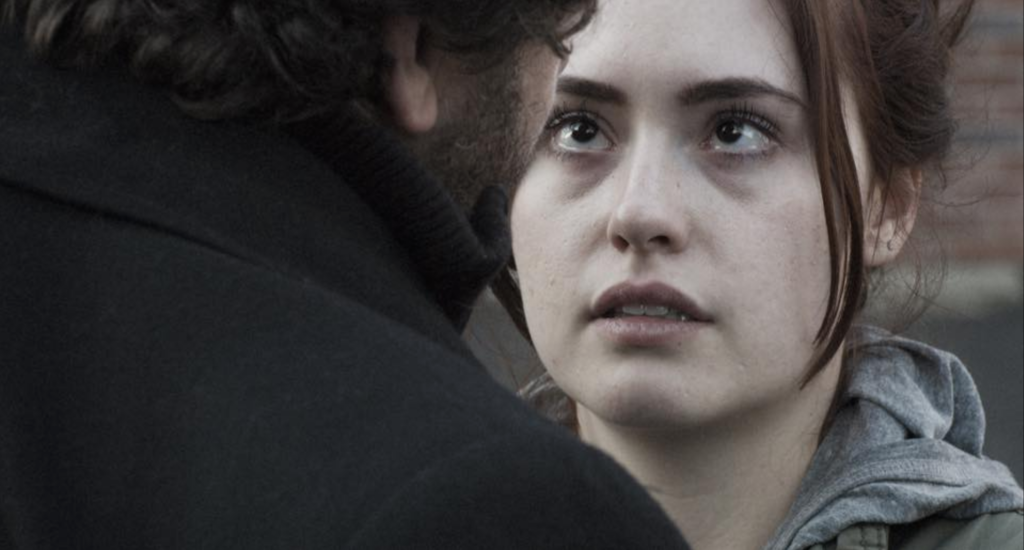
Hannah: I can’t really, either.
Jillian: We felt super lucky to find somebody like him. Now that I’ve watched it so many times, there’s definitely a part where I’m like, Oh wow, you’re awful! Like you’re an awful human being! But then at the end he’s kind of redeemable.
Cailin: It’s funny, ‘cause like we said—you were talking about how you didn’t want to overdo it in the movie, the line was thin enough that we actually couldn’t tell if we we’re making it up in our heads that he’s the worst!
Jillian: And that’s what we wanted it to be in the end. The script has evolved since I first got it, but that’s how we wanted it to be. The audience is kind of in on it with Lindsey where it’s like, wait, what? I’m confused now!
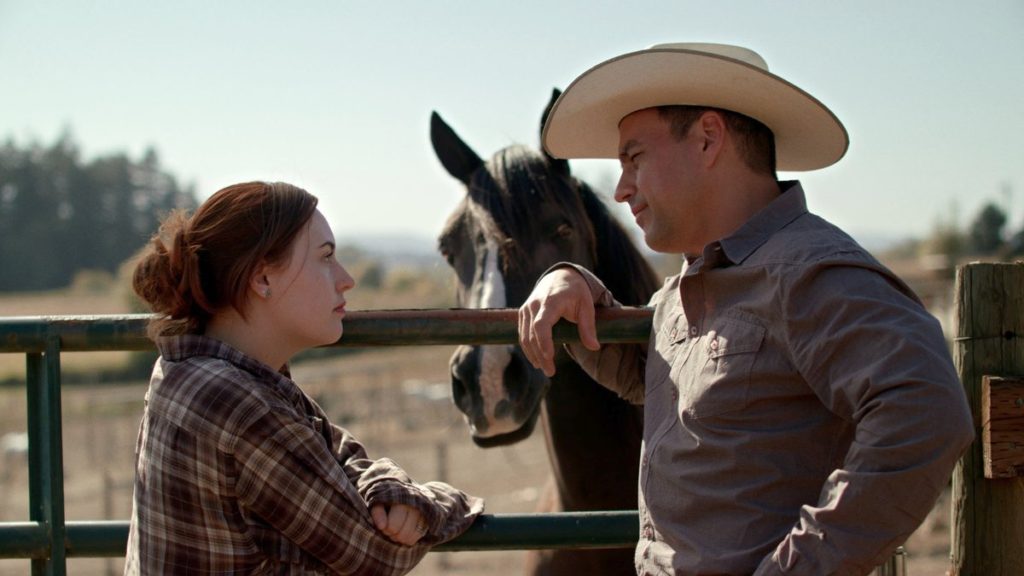
Hannah: I think when he went to her mom she took that way better than I would have!
Cailin: She tried to tell her mom once, and then was just like, ‘Okay, this is the way it is.’ [laughs]
Jillian: I think the only reason she didn’t totally have an absolute mental breakdown is because there was so much other craziness going on! She was like, okay, here’s just one tiny piece of the crazy that’s going on in my life right now.
Hannah: I think it’s so interesting that the movie is a story of Lindsey trying to find her dad, but the entire film takes place in her hometown! It’s almost like the story is more about the family dynamic than an actual journey where she’s physically traveling somewhere.
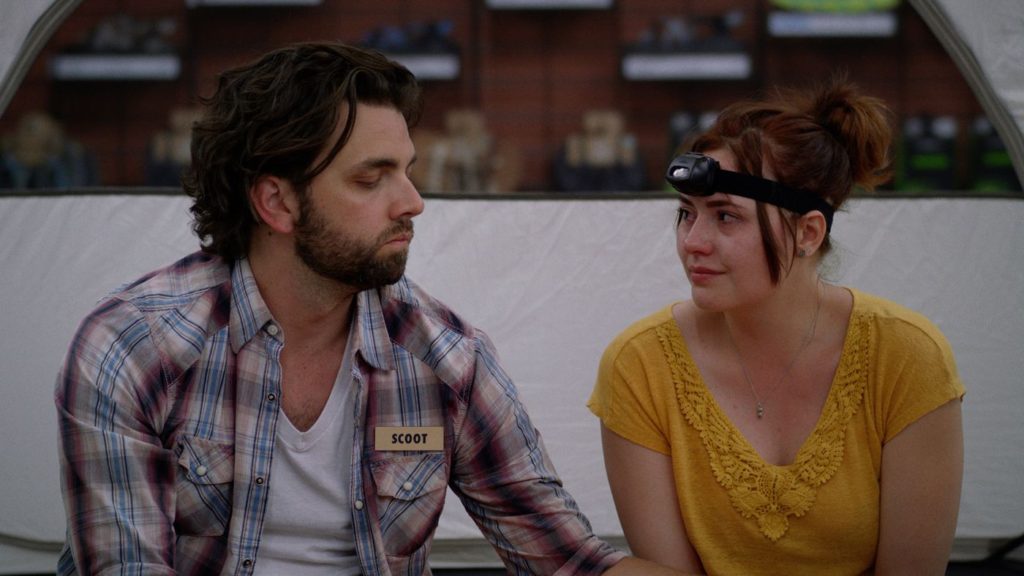
Cailin: I kept waiting for that trip to the mountain, and then she didn’t even need to go!
Jillian: Yeah! She never quite makes it there!
Hannah: Because everything’s happening at home!
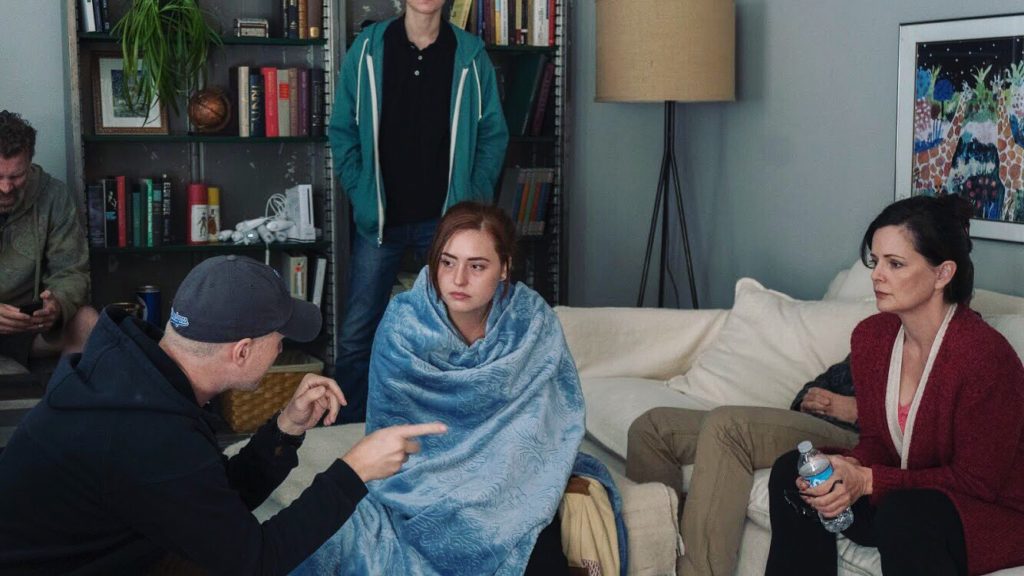
Cailin: When did you make this crossover into producing? Was there a point when you thought you just wanted to act, or did you always have this goal that you wanted to produce too?
Jillian: You know, I’ve been acting for 20 years in LA now, and I got to that point when I was like 16 where they were casting 18-25 year olds to play 16, because it’s easier on them legally with teachers and all that kind of stuff. And I just was super bored, because I’ve never not worked. I always was working on something, so I was confused, and I was getting frustrated, so my mom wrote a series, and we decided to produce it. For awhile it was at a big agency, and they were trying to figure out how to make it. This was like 2010, so a long time ago—before web series were a thing, before Netflix, and Hulu, and Amazon had streaming, before anything. And this agency that had it didn’t know what to do. We were like, “We wanna make it and just put it on the internet!” And they were like, “That doesn’t exist.” And we were like, “Right, but we wanna do that.” There was a couple of other series creators who were doing it at that time, and I remember all of us sitting in a room and trying to figure out how we make an internet series, ‘cause it hadn’t been done really. It was a brand-new concept. We all just of figured out that we just had to make it, and there was a little distributor back then that was called KoldCast, that was doing all sorts of web series distribution as soon as it started taking off. But, I produced the first three seasons of that [Miss Behave], we did three seasons, it was great. It was one of the number one online teen dramas back in the day. After that I directed and produced a teen dance film called To The Beat!, which is on Netflix, which is a lot of fun. I think in this day and age, if you want to act, and if you want to be a filmmaker, you just kind of have to do it. It’s easier these days, too—you can make things on a lower budget, and there’s all these options with fundraising and all that kind of stuff now. And I just feel like if you truly wanna act, waiting around for that audition and just going out on things when your agent gets them for you isn’t enough.
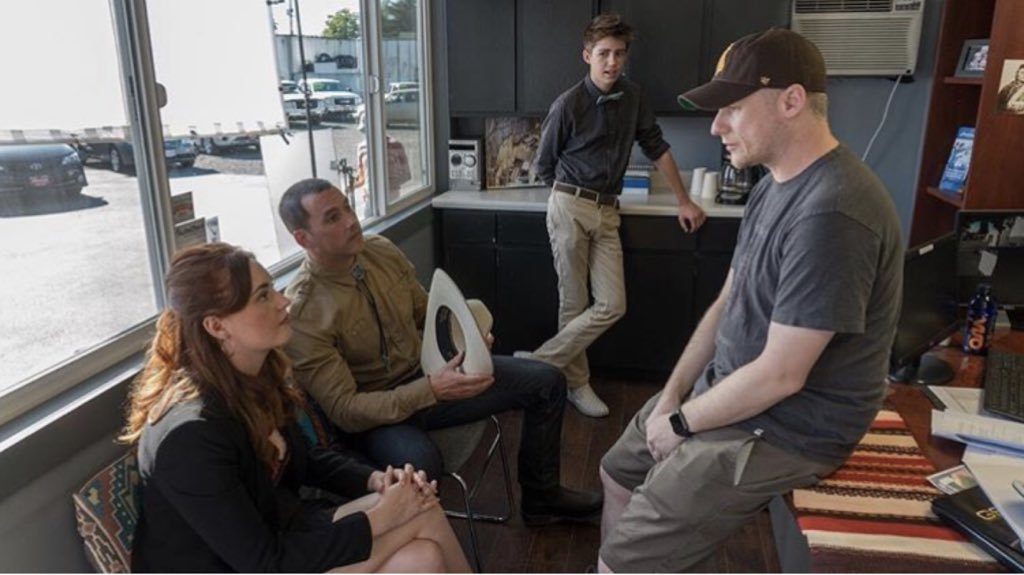
Hannah: Last question for you, Jillian. What do you most want audiences to take away from Lindsey’s story?
Jillian: That’s a good question. I guess the biggest takeaway for Lindsey, and for anybody watching it, is that when you are going through a really tough time, it’s easiest to just talk to your family, and try to go through it together. I think when something tragic happens, you should connect with your family and you should accept it, even if there’s these crazy obstacles between you guys, and there’s always been this harboring something between you. I think that it’s best to always go to your family and rely on them, because had Lindsey done that with her mom, it would have been a completely different story.
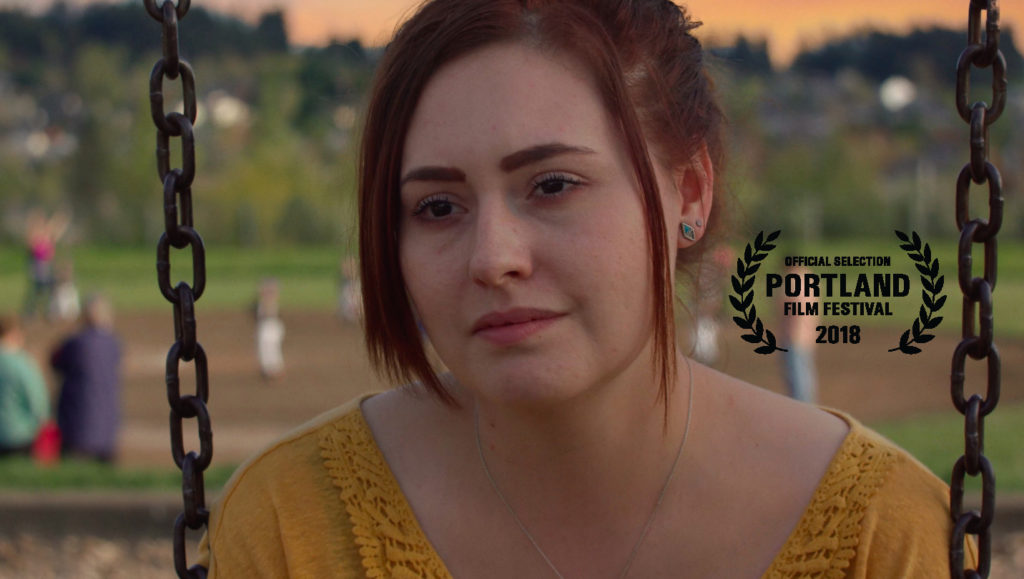
Check out Pretty Broken on Video On Demand now!
